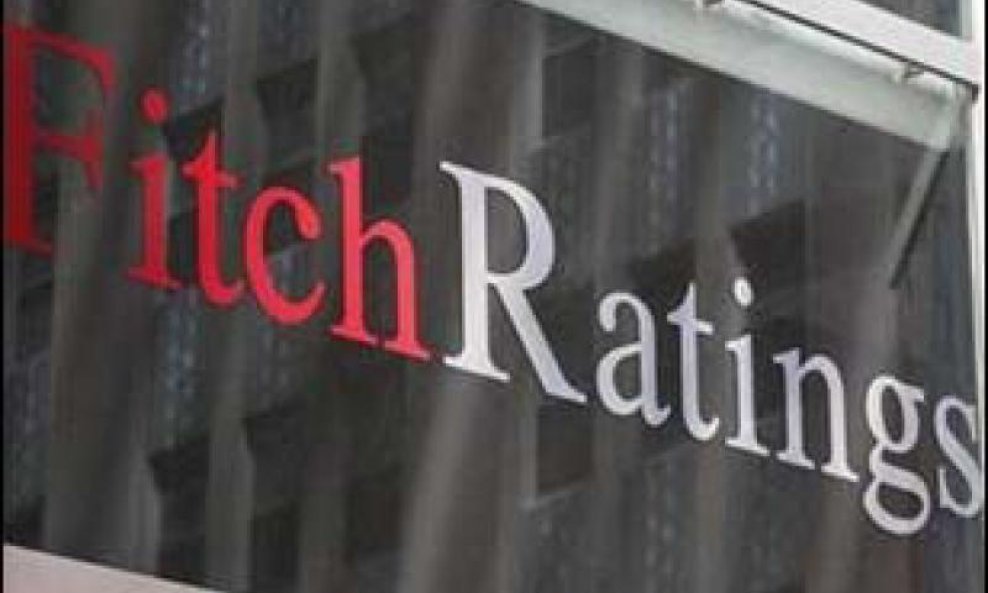Fitch Ratings has downgraded Croatia's rating by one notch, from 'BBB-' to 'BB+', because the country's fiscal situation has deteriorated and its economy is again expected to contract this year.
The 'BB+' rating denotes a non-investment (speculative) grade, and the agency cited several key reasons that led it to downgrade the rating.
"Croatia's fiscal outlook has deteriorated since Fitch's previous sovereign rating review in November 2012. The agency has revised up its forecast for this year's general government deficit to 4.7% in 2013 from 3.9%, while general government debt/GDP is now expected to peak at 66% of GDP in 2016, up from our previous forecast of 62%. Stock-flow adjustments, emanating from the restructuring of loss-making state-owned enterprises, pose further risks to public debt sustainability," the rating agency said in a statement on Friday.
"A structurally weak growth outlook has impaired the prospects for fiscal consolidation and the attainment of public debt sustainability. Real GDP growth has significantly underperformed 'BBB' and 'BB' medians: the economy has been mired in recession since 2009, contracting by a cumulative 11%, and unemployment far exceeds rating peers. Q213 national accounts suggest that the rate of contraction is declining, but Fitch now expects the economy to contract by a further 0.9% in 2013, in contrast to our previous expectation of growth of 0.3%.
"Revised budget projections, published in March, point to a mild fiscal consolidation strategy based on government growth forecasts of 0.7% in 2013 and 2.4% in 2014. Measures to clamp down on tax evasion and improve compliance have borne fruit, but revenues have fallen this year, whilst pressures continue to build on the expenditure side. Fitch's projections for growth and general government balances are materially worse than official projections.
"Limited progress on implementing credible medium-term fiscal consolidation strategy. The late-2012 announcement of a relaxation of budget targets for 2013 breached a short-lived Fiscal Responsibility Law."
The agency said that the 'BB+' rating reflected several key rating drivers.
"High per capita income relative to 'BBB' and 'BB' peers, matched by superior human development and governance metrics. Croatia's recent accession to the EU could provide the road map for fiscal consolidation within the framework of the Excessive Deficit Procedure.
"Croatia's rigid labour market and weak business environment undermine competitiveness and hamper medium term growth, while the near-term outlook for major trading partners Italy and Slovenia is poor.
"The economy as a whole is relatively highly leveraged, notwithstanding a balanced current account. Net external debt stood at 62.5% of GDP in 2012.
"Markedly lower and less volatile inflation than peers and a stable real exchange rate. A well-developed domestic capital market and a strong, majority foreign-owned banking system also play to Croatia's advantage, enhancing fiscal financing flexibility.
"The risk to the public finances is compounded by the extension of public debt guarantees which amounted to 11.7% of GDP at end-2012. The potential for these liabilities to crystallise on the government's balance sheet is high: restructuring of some shipyards in 2012 entailed a transfer of liabilities (and increase in general government debt) equivalent to 2.8% of GDP."
The stable outlook reflects Fitch's assessment that upside and downside risks to the 'BB+' rating are broadly balanced. Nonetheless, the agency does not rule out further rating actions should the situation change, noting that failure to implement a credible medium term fiscal consolidation strategy would further impair public debt sustainability, which would ultimately lead to a further negative rating action. "By contrast, greater progress on fiscal reform and deficit-reduction would put positive pressure on the rating over the medium term."
"Failure of the economy to recover would put further strains on the public finances and could lead to negative rating action. Conversely, restoring economic growth and anchoring fiscal policy would be rating positive. Structural reforms could improve potential growth over the medium term," Fitch said.





























